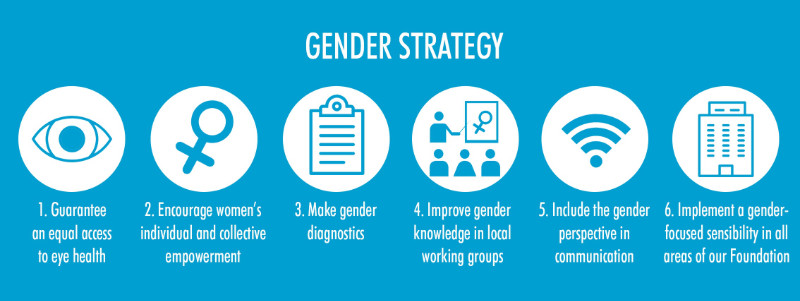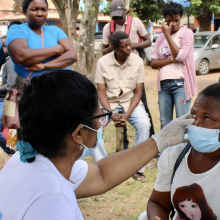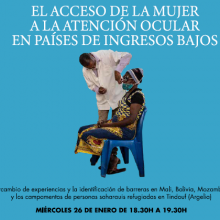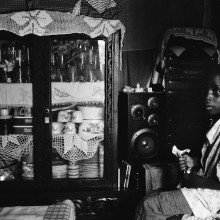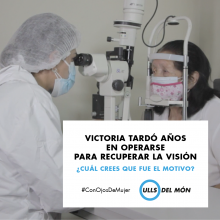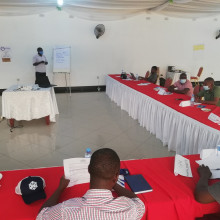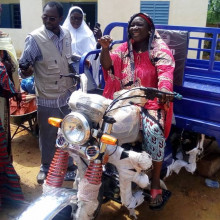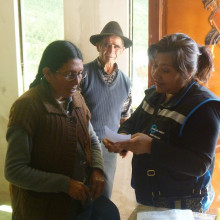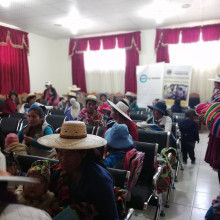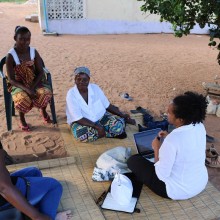Through women’s eyes
The new mobile eye clinic, launched in Inhambane province, addresses some of the challenges of gender-sensitive eye care in the province. Women and girls have the most difficulty in accessing eye health services and this situation leads to additional discrimination in the context of vulnerability in which they find themselves. In some districts, testimonies such […]
The activities that Eyes of the world has been carrying out in the province of Inhambane have had an important component in the fight against inequality in equitable access to eye health. Specifically, the activities recently implemented within the framework of the project have been based on the desire to reduce these inequalities by bringing […]
On January 26, Eyes of the world organized a virtual roundtable to exchange experiences and to share the work of gender diagnosis that has been carried out by the Foundation in recent years in the countries where it has active projects. The aim was to identify the barriers to access to eye care that women […]
The role of the media in health promotion has been an issue since 1986. The Ottawa Charter defined “health promotion” as “the process of empowering people to increase their control over their health and to improve their health”, further establishing the media as a key player. It is indisputable that the purpose of the media is […]
Since health care deficiencies, particularly for women and girls, are inherently global problems, a one-sided approach, focusing only on low-income countries, is not plausible. To combat inequalities in access to eye health that occur around the world, the Foundation launches initiatives that seek to raise awareness in society towards social transformation, placing the right to […]
Throughout almost 20 years working in ophthalmological cooperation for development, and once various gender diagnoses have been carried out in different countries, Eyes of the world has found that women have fewer access to cataract surgery than men and that they have a worse prognosis. The causes of these inequalities have as their starting point […]
Malian women’s associations play a fundamental role in the dissemination of eye health awareness-raising and promotion campaigns. First, they attend informative talks in order to get a basic understanding of the importance of vision care, and then they hold informative sessions in different communities. In order to carry out these activities that also promote the […]
The concept of gender in Bolivia has been linked to the figure of the women since its inception. The actions undertaken by local administrations in regards to this subject have helped clarify the social, economic and political situation of women, and subsequently reduce some of the most obvious inequalities. However, it must be said that […]
In its fight to combat avoidable blindness and within the framework of its gender strategy 2018 – 2020, Eyes of the world has as one of its priority axes the promotion of the individual and collective empowerment of women. In this regard, the Eyes of Bolivia programme has given a leading role to Tarija and […]
Gender equality is one of the main principles in Eyes of the world’s activities. Faced with the lack of data about gender roles’ effect on eye healthcare for women in Inhambane (Mozambique), Eyes of the world decided to carry out a gender diagnose. Our goal has been to identify the hindrances that prevent Mozambican women […]
